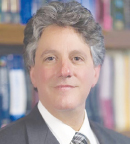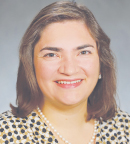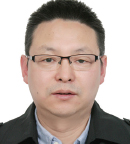
Wanhong Zhao, MD, PhD
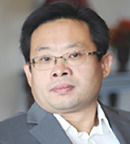
Frank (Xiaohu) Fan, MD, PhD
Chinese investigators reported that 100% of patients with relapsed or refractory multiple myeloma responded to autologous chimeric antigen receptor (CAR) T-cell therapy, and 14 of 19 (74%) who were followed for a median of 4 months achieved a stringent complete response and have not recurred.1
“We now have 5 patients with more than 12 months of follow-up who continue to demonstrate durable complete remission, which raises hope of cure,” said Wanhong Zhao, MD, PhD, Associate Director of Hematology at Second Affiliated Hospital of Xi’an Jiaotong University in Xi’an, China.
At the 2017 ASCO Annual Meeting, Dr. Zhao presented the results of treatment with a novel and proprietary CAR T product, LCAR-B38M, that targets B-cell maturation antigen (BCMA). He was joined at a press briefing by coauthor Frank (Xiaohu) Fan, MD, PhD, Interim Chief Scientific Officer and Founder of Nanjing Legend Biotech, Inc, the manufacturer of LCAR-B38M.
BCMA is almost universally expressed on the surface of myeloma cells, and it signals the cancer cells to grow. Several other BCMA–targeted constructs, as well as CTL019, which targets CD19, have also shown promise in early studies.
LCAR-B38M Developed in China
LCAR-B38M is based on a bispecific antibody platform with potent target selectivity. It was engineered to optimize the CAR target–binding mechanism and subsequent CAR signal transduction. LCAR-B38M enables the collaborative binding of two key BCMA epitopes and thus “firmly locks in the target antigen,” Dr. Zhao said.
BCMA-SPECIFIC CAR T-CELL THERAPY IN MYELOMA
- A CAR T-cell construct that targets B-cell maturation antigen (BCMA) on the surface of multiple myeloma cells was administered to 19 patients with relapsed or refractory myeloma in China.
- The overall response rate was 100%, and stringent complete responses were achieved by 74%.
- Patients who achieved a stringent complete response have not relapsed.
- Few cases of cytokine-release syndrome were observed.
“It’s like we place a GPS on the immune cells, and we have a professional killer who never misses his target,” he explained.
Dr. Fan further described to journalists how the unique multidomain product has advantages. “A single-specific CAR T is like holding a target with a single hand—but this target is so big, it’s not like holding a ping pong ball but a basketball. If you are holding a basketball with both hands rather than one, you have more strength, or in this case, high avidity. It’s also important to have potent binding, so the locked cancer cells do not escape.”
“We believe this [structure] can also reduce or avoid the high incidence of disease relapse seen in other CAR T-cell clinical trials due to antigen escape,” Dr. Fan said. “We also believe this scheme can significantly improve the potency of immunotherapy and can contribute to its safety.”
Study Details
The investigators treated 35 patients who received at least 3 prior lines of therapy and had more than 10% BCMA expression on malignant plasma cells. Of the 35 patients, 19 have been followed for a median of 4 months and were the subject of this report.
After a conditioning chemotherapy regimen, patients received three infusions of LCAR-B38M over 6 days. The dose range was 1.2 million to 7.1 million cells/kg, with the majority of patients receiving 2 to 3 million cells/kg. “We have found this dose works well…. But whatever dose we inject, it works. There’s no clear dose dependence,” Dr. Fan said.
“Our data show very clearly that with increasing follow-up, the therapeutic efficacy improves progressively.”— Wanhong Zhao, MD, PhD
Tweet this quote
Of the 19 patients, 14 (74%) had a stringent complete response, 4 (21%) achieved a very good partial response, and 1 (5%) had a partial response, for an overall response rate of 100%. Depth of response deepened over time, and disease markers began to normalize. Patients achieving stringent complete responses have not relapsed.
“Our data show very clearly that with increasing follow-up, the therapeutic efficacy improves progressively,” Dr. Zhao said.
The treatment was well tolerated. “Unlike what’s seen with other CAR T cells, we saw no signs of neurotoxicity, including cerebral edema, and less cytokine-release syndrome than seen with other constructs,” he added.
Cytokine-release syndrome was seen in 83% of 35 patients. This was grade 1 in 17 patients, grade 2 in 10 patients, and grade 3 in 2 patients with no grade 4 events. All episodes were well controlled, and 40% of patients received tocilizumab (Actemra). “So far we’ve seen no detrimental effect of using it and no evidence that it compromises efficacy. We encourage its use, so patients get over cytokine-release syndrome earlier,” Dr. Fan said.
The data reported at the ASCO Meeting were from patients treated in China, but investigators are planning a U.S. trial. Dr. Fan commented that for all the myeloma “key opinion leaders” he contacted, “almost all without exception are interested in participating [in this U.S. trial].”
Another BCMA-Based Construct: bb2121
Phase I first-in-human data for a different BCMA-targeted CAR T-cell construct, bluebird bio’s bb2121, were presented at the ASCO Meeting by Jesus G. Berdeja, MD, of Sarah Cannon Research Institute, Nashville.2 In a study of 21 patients with a median of 7 prior regimens, the overall response rate was 89%, rising to 100% for patients receiving the optimal dose.
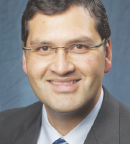
“Once we get to 150 million cells, which we know is therapeutic, there’s a 100% response rate.”— Jesus G. Berdeja, MD
Tweet this quote
“Once we get to 150 million cells, which we know is therapeutic, there’s a 100% response rate, a 73% rate of very good partial responses or better, and a 27% complete response rate,” Dr. Berdeja reported.
All four patients evaluable for minimal residual disease were minimal residual disease–negative. Durable responses were observed in all evaluable patients dosed at > 50 106 cells. “One patient with 80% bone marrow involvement was completely devoid of myeloma cells by day 14. These responses happen quickly,” he told The ASCO Post. “The results seen thus far are very impressive, especially given such a heavily pretreated population with a median of 7 prior therapies, 71% prior daratumumab use, and 29% ‘penta-refractory’ [ie, refractory to 5 standard therapies].”
“Another exciting thing is the lack of toxicity,” added Dr. Berdeja. Cytokine-release syndrome occurred in 71% of patients, but events were mostly grade 1/2, and no grade 3/4 neurotoxicity was observed. A dose-expansion cohort will be initiated soon. ■
DISCLOSURE: Dr. Berdeja has received research funding from Bluebird.
REFERENCES
1. Fan F, Zhao W, Liu J, et al: Durable remissions with BCMA-specific chimeric antigen receptor (CAR)-modified T cells in patients with refractory/relapsed multiple myeloma. 2017 ASCO Annual Meeting. Abstract LBA3001. Presented June 5, 2017.
2. Berdeja JG, Lin Y, Raje NS, et al: First-in-human multicenter study of bb2121 anti-BCMA CAR T-cell therapy for relapsed/refractory multiple myeloma: Updated results. 2017 ASCO Annual Meeting. Abstract 3010. Presented June 5, 2017.

